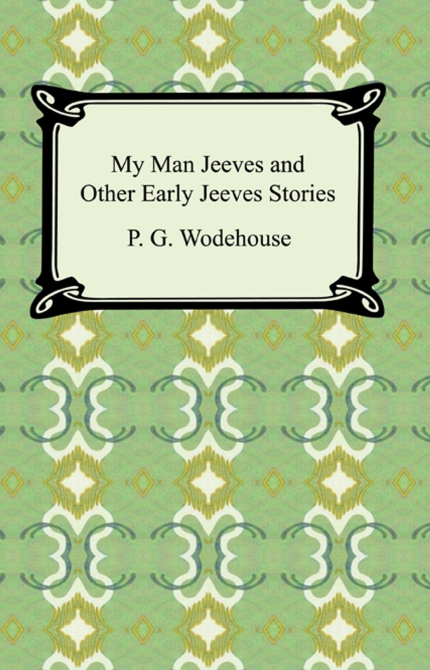My Man Jeeves and Other Early Jeeves Stories, by P.G. Wodehouse

My Man Jeeves and Other Early Jeeves Stories by P.G. Wodehouse
My rating: 1 of 5 stars
Oh, well, I’ve tempted my reading luck with another classic – and didn’t like the experience. “My Man Jeeves and Other Early Jeeves Stories” is a collection of short stories by English humorist P.G. Wodehouse, first published in 1919. That alone should have been a red flag…
The book contains eight stories in total, with four featuring Jeeves and four featuring other characters. This is the first and smallest gripe of mine: While Bertie Wooster and Jeeves were mostly tolerable, the other characters felt out of place and their inclusion in this collection mistaken.
The stories are set in London and New York City, and they often involve misunderstandings, mistaken identities, and romantic entanglements. Typical “ingredients” for this rather slapstick-y kind of comedy.
The stories themselves I found to be disappointing and frustrating. While I can appreciate the clever wordplay and humour in some of the stories, the overall tone and structure of the book left me feeling bored and unimpressed. Near the end, I quick-read some stories because, and that’s my main issue, their structure is nearly always identical:
In each story, a problem arises, Jeeves presents a plan, the plan works for a while, but then something goes wrong and the plan backfires. Jeeves then conceives a new plan, which sets things straight and everything works out in the end. While this formula may have been fresh and exciting when the stories were first published, it feels tired and predictable now, and it makes the book feel repetitive and monotonous.
Furthermore, some of the stories in the book contain offensive language (N-word, in a very negative context to boot) and attitudes that are unacceptable by modern standards. The use of racial slurs and stereotypes is particularly troubling, and it detracts from any enjoyment that might be derived from the humour in these stories.
I was also mildly annoyed by the excessive use of dated terms and language: Words like “chappies” and “Johnnies” may have been commonly used in the first half of the 20th century in British English but nowadays also contribute to the dated and out-of-touch feel of these stories for me at the very least.
»“Well, I’ll be popping. Toodle-oo!”
– “Pip-pip!”«
Overall, I found “My Man Jeeves and Other Early Jeeves Stories” to be a boring, disappointing, frustrating and at times annoying read. While I can appreciate the historical literary value of Wodehouse’s writing, the issues I mentioned ultimately made this author and his work uninteresting to me at best.
One out of five stars.
Blog | Facebook | Twitter | Mastodon | Instagram | Pinterest | Medium | Matrix | Tumblr
Ceterum censeo Putin esse delendam
View all my reviews